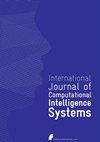Financial Shared Service, Digital Transformation and Corporate Value Creation
IF 2.9
4区 计算机科学
International Journal of Computational Intelligence Systems
Pub Date : 2023-09-26
DOI:10.1007/s44196-023-00334-2
引用次数: 0
Abstract
Abstract The trend of Chinese enterprises has defied the hard-hit international investment and trade activities of recent years. The scale and globalization of local enterprises continue to develop, and the enterprise management efficiency has become increasingly prominent. This paper delves into the strategic importance of FSSC in augmenting corporate value, and examines the link between digital transformation and the formation of FSSC. The introduction of FSSC and its accompanying digital technology marks a new juncture for corporate reform. Based on RBV and DCV, this paper studies the strategic significance of FSSC to enhance corporate value, and deconstructs the relationship between digital transformation and the development process of financial shared service centers. Based on the time-varying DID, 335 listed companies were selected for a quasi-natural experiment. The results showed that: (1) financial shared service centers can significantly promote the improvement of corporate value. (2) Digital transformation can promote the establishment and development of financial sharing service centers, thus promoting the improvement of corporate value. (3) The effects of FSSC and digital transformation are characterized by heterogeneity. The worth of financial shared service centers for non-state-owned and manufacturing companies is substantial. Digital transformation has a noteworthy positive moderating effect on them but has no considerable moderating effect on state-owned and non-manufacturing companies. The government ought to bolster policy direction, keep up the digital transformation of businesses, and aid them in achieving rapid financial transformation; senior executives should remain cognizant of their strategic position and strive to execute a satisfactory job of both internal and external coordination, as the research findings suggest.财务共享服务、数字化转型与企业价值创造
中国企业的发展趋势顶住了近年来国际投资贸易活动的沉重打击。地方企业的规模化和全球化不断发展,企业管理效率日益突出。本文探讨了FSSC在提升企业价值方面的战略重要性,并探讨了数字化转型与FSSC形成之间的联系。FSSC及其伴随的数字技术的引入标志着企业改革进入了一个新的节点。基于RBV和DCV,本文研究了金融共享服务中心提升企业价值的战略意义,并解构了数字化转型与金融共享服务中心发展过程的关系。基于时变DID,选取335家上市公司进行准自然实验。研究结果表明:(1)财务共享服务中心能够显著促进企业价值的提升。(2)数字化转型可以促进金融共享服务中心的建立和发展,从而促进企业价值的提升。(3) FSSC和数字化转型的影响具有异质性。为非国有企业和制造业企业建立金融共享服务中心的价值是巨大的。数字化转型对其有显著的正向调节作用,但对国有企业和非制造业企业没有显著的调节作用。政府应加强政策导向,坚持企业数字化转型,帮助企业实现快速金融转型;正如研究结果所示,高管应保持对自己战略地位的认识,努力完成令人满意的内部和外部协调工作。
本文章由计算机程序翻译,如有差异,请以英文原文为准。
求助全文
约1分钟内获得全文
求助全文
来源期刊

International Journal of Computational Intelligence Systems
工程技术-计算机:跨学科应用
自引率
3.40%
发文量
94
期刊介绍:
The International Journal of Computational Intelligence Systems publishes original research on all aspects of applied computational intelligence, especially targeting papers demonstrating the use of techniques and methods originating from computational intelligence theory. The core theories of computational intelligence are fuzzy logic, neural networks, evolutionary computation and probabilistic reasoning. The journal publishes only articles related to the use of computational intelligence and broadly covers the following topics:
-Autonomous reasoning-
Bio-informatics-
Cloud computing-
Condition monitoring-
Data science-
Data mining-
Data visualization-
Decision support systems-
Fault diagnosis-
Intelligent information retrieval-
Human-machine interaction and interfaces-
Image processing-
Internet and networks-
Noise analysis-
Pattern recognition-
Prediction systems-
Power (nuclear) safety systems-
Process and system control-
Real-time systems-
Risk analysis and safety-related issues-
Robotics-
Signal and image processing-
IoT and smart environments-
Systems integration-
System control-
System modelling and optimization-
Telecommunications-
Time series prediction-
Warning systems-
Virtual reality-
Web intelligence-
Deep learning
 求助内容:
求助内容: 应助结果提醒方式:
应助结果提醒方式:


